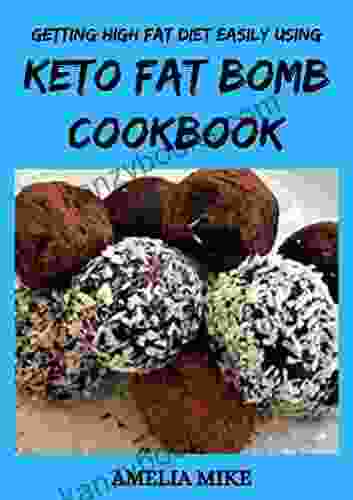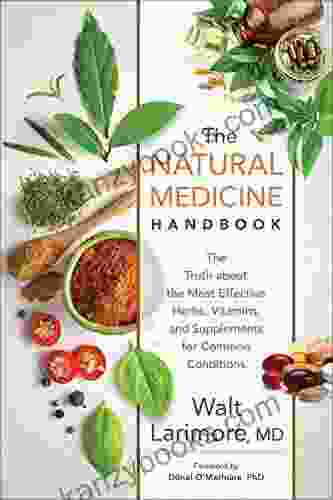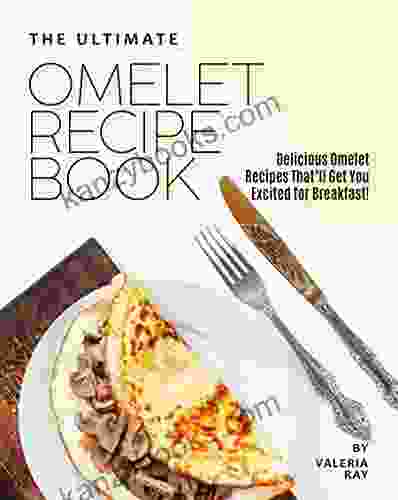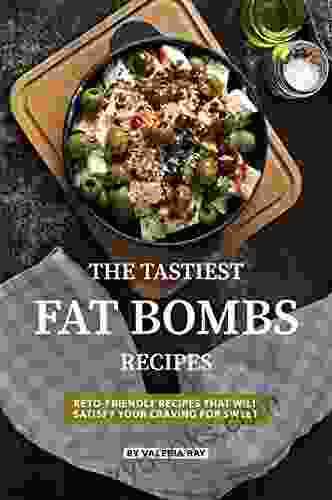The Truth About The Most Effective Herbs Vitamins And Supplements For Common Conditions

In today's fast-paced world, maintaining optimal health and well-being has become increasingly challenging. Turning to natural remedies, such as herbs, vitamins, and supplements, has gained significant popularity as individuals seek alternative and complementary approaches to healthcare.
4.6 out of 5
| Language | : | English |
| File size | : | 10021 KB |
| Text-to-Speech | : | Enabled |
| Enhanced typesetting | : | Enabled |
| Print length | : | 266 pages |
| Lending | : | Enabled |
| Screen Reader | : | Supported |
| X-Ray | : | Enabled |
However, navigating the vast array of available products can be overwhelming, and understanding which ones are truly effective can be confusing. This comprehensive guide aims to shed light on the science behind herbs, vitamins, and supplements, empowering you to make informed decisions about your health.
Section 1: Herbs - Nature's Healing Power
Herbs: A Long-Standing Tradition
Herbs have been used for centuries in traditional medicine to treat various health conditions. Today, scientific research continues to uncover the potent compounds found in herbs that offer therapeutic benefits.
Understanding Herb Classification
Herbs can be classified based on their active compounds, such as alkaloids, flavonoids, and terpenes. Each compound exerts specific effects on the body, such as reducing inflammation, boosting immunity, or calming the nervous system.
Common Herbs and Their Uses
- Echinacea: Enhances immune function, especially against colds and flu.
- Ginger: Aids digestion, reduces nausea, and alleviates inflammation.
- Turmeric: A powerful anti-inflammatory agent that supports joint health and cognitive function.
- Chamomile: Promotes relaxation, reduces anxiety, and improves sleep.
- Lavender: Calms the nervous system, alleviates stress, and improves mood.
Section 2: Vitamins - Essential Nutrients for Health
The Essential Role of Vitamins
Vitamins are organic compounds that the body cannot produce on its own. They are vital for various bodily functions, including energy production, immune system support, and cell growth.
Sources of Vitamins
Vitamins can be obtained through a balanced diet that includes fruits, vegetables, whole grains, and lean proteins. However, supplementation may be necessary to ensure adequate intake, especially for individuals with certain dietary restrictions or health conditions.
Important Vitamins and Their Benefits
- Vitamin C: A potent antioxidant that supports immune function and promotes skin health.
- Vitamin D: Essential for bone health, immune system function, and mood regulation.
- Vitamin B12: Vital for red blood cell production, nerve function, and brain health.
- Vitamin E: A powerful antioxidant that protects cells from damage and supports heart health.
- Folic Acid: Crucial for DNA synthesis, cell growth, and fetal development.
Section 3: Supplements - Enhancing Well-being
Supplements: Complementary Support
Supplements are products that provide concentrated amounts of nutrients, herbs, or other substances that may not be adequately obtained through diet alone. They can enhance overall well-being, address specific health concerns, or support athletic performance.
Types of Supplements
Supplements come in various forms, including capsules, tablets, powders, and liquids. They contain a wide range of ingredients, from essential vitamins and minerals to plant extracts and probiotics.
Popular Supplements and Their Benefits
- Omega-3 Fatty Acids: Support brain function, heart health, and reduce inflammation.
- Probiotics: Beneficial bacteria that support digestive health, boost immunity, and improve skin conditions.
- Curcumin: A potent antioxidant and anti-inflammatory compound found in turmeric.
- Creatine: Enhances muscle strength and power, especially for athletes.
- Glucosamine and Chondroitin: Support joint health and reduce pain associated with osteoarthritis.
Section 4: Choosing the Right Herbs, Vitamins, and Supplements
Factors to Consider
When choosing herbs, vitamins, and supplements, it's crucial to consider several factors:
- Health Conditions: Determine if the chosen product aligns with your specific health concerns.
- Quality Standards: Look for products that meet industry standards and undergo rigorous testing.
- Dosage: Follow the recommended dosage guidelines provided by the manufacturer or healthcare professional.
- Interactions: Be aware of potential interactions between different products and medications.
- Personal Preferences: Consider your dietary restrictions, allergies, and lifestyle when selecting products.
Consult Your Healthcare Professional
It's always advisable to consult a qualified healthcare professional before incorporating new herbs, vitamins, or supplements into your regimen. They can provide personalized guidance, assess potential risks and benefits, and ensure the recommended products are safe and appropriate for your individual needs.
Unlocking the potential of herbs, vitamins, and supplements can empower you to take proactive control of your health. By understanding their scientific underpinnings, benefits, and potential interactions, you can make informed decisions about incorporating these natural remedies into your well-being journey.
Remember to prioritize quality, consult with your healthcare professional, and consider your unique health needs. Embrace the power of nature and science to optimize your health and live a vibrant life.
Disclaimer: The information provided in this guide is for educational purposes only and does not constitute medical advice. Always seek the guidance of a qualified healthcare professional before using any herbs, vitamins, or supplements.
4.6 out of 5
| Language | : | English |
| File size | : | 10021 KB |
| Text-to-Speech | : | Enabled |
| Enhanced typesetting | : | Enabled |
| Print length | : | 266 pages |
| Lending | : | Enabled |
| Screen Reader | : | Supported |
| X-Ray | : | Enabled |
Do you want to contribute by writing guest posts on this blog?
Please contact us and send us a resume of previous articles that you have written.
 Book
Book Novel
Novel Page
Page Chapter
Chapter Text
Text Story
Story Genre
Genre Reader
Reader Library
Library Paperback
Paperback E-book
E-book Magazine
Magazine Newspaper
Newspaper Paragraph
Paragraph Sentence
Sentence Bookmark
Bookmark Shelf
Shelf Glossary
Glossary Bibliography
Bibliography Foreword
Foreword Preface
Preface Synopsis
Synopsis Annotation
Annotation Footnote
Footnote Manuscript
Manuscript Scroll
Scroll Codex
Codex Tome
Tome Bestseller
Bestseller Classics
Classics Library card
Library card Narrative
Narrative Biography
Biography Autobiography
Autobiography Memoir
Memoir Reference
Reference Encyclopedia
Encyclopedia Sue Ochse
Sue Ochse Sean Burch
Sean Burch Vivian Mcdermott
Vivian Mcdermott Sylvie Beljanski
Sylvie Beljanski Stacey Shearer
Stacey Shearer Simone De La Rue
Simone De La Rue Tanita De Ruijt
Tanita De Ruijt Yolanda King
Yolanda King The Sincere Seeker Collection
The Sincere Seeker Collection Taras Grescoe
Taras Grescoe Vincent Casciato
Vincent Casciato Sarah Bartlett
Sarah Bartlett Thea Summer Deer
Thea Summer Deer Laurie Larsen
Laurie Larsen William Sitwell
William Sitwell Sylvia Stewart
Sylvia Stewart Zahabiyah Yamasaki
Zahabiyah Yamasaki Veronica Anderson
Veronica Anderson William Shakespeare
William Shakespeare Kristen Schneider
Kristen Schneider
Light bulbAdvertise smarter! Our strategic ad space ensures maximum exposure. Reserve your spot today!
 Carl WalkerFollow ·2.7k
Carl WalkerFollow ·2.7k Thomas HardyFollow ·4.9k
Thomas HardyFollow ·4.9k Christopher WoodsFollow ·9.6k
Christopher WoodsFollow ·9.6k Clark BellFollow ·5.1k
Clark BellFollow ·5.1k James HayesFollow ·5.8k
James HayesFollow ·5.8k Wesley ReedFollow ·10.1k
Wesley ReedFollow ·10.1k Oliver FosterFollow ·9.8k
Oliver FosterFollow ·9.8k Emanuel BellFollow ·5.6k
Emanuel BellFollow ·5.6k

 Virginia Woolf
Virginia WoolfGetting High Fat Diet Easily Using Keto Fat Bomb Cookbook
Unveiling the Power of Fat...

 Milan Kundera
Milan KunderaAre You Cryin' Brian? Find the Inspiration and Humor in...
Life can be full of...

 Edmund Hayes
Edmund HayesUnlock Your Vitality: The 15-Day Natural Energy Boost...
Are You Ready to...

 Gavin Mitchell
Gavin MitchellMultiple Sclerosis Life Expectancy: Unveiling the Impact...
Multiple Sclerosis (MS) is a...

 Gabriel Garcia Marquez
Gabriel Garcia MarquezGet The Thighs That Can Crack Man Head Like Walnut
Are you tired of weak, flabby...
4.6 out of 5
| Language | : | English |
| File size | : | 10021 KB |
| Text-to-Speech | : | Enabled |
| Enhanced typesetting | : | Enabled |
| Print length | : | 266 pages |
| Lending | : | Enabled |
| Screen Reader | : | Supported |
| X-Ray | : | Enabled |














